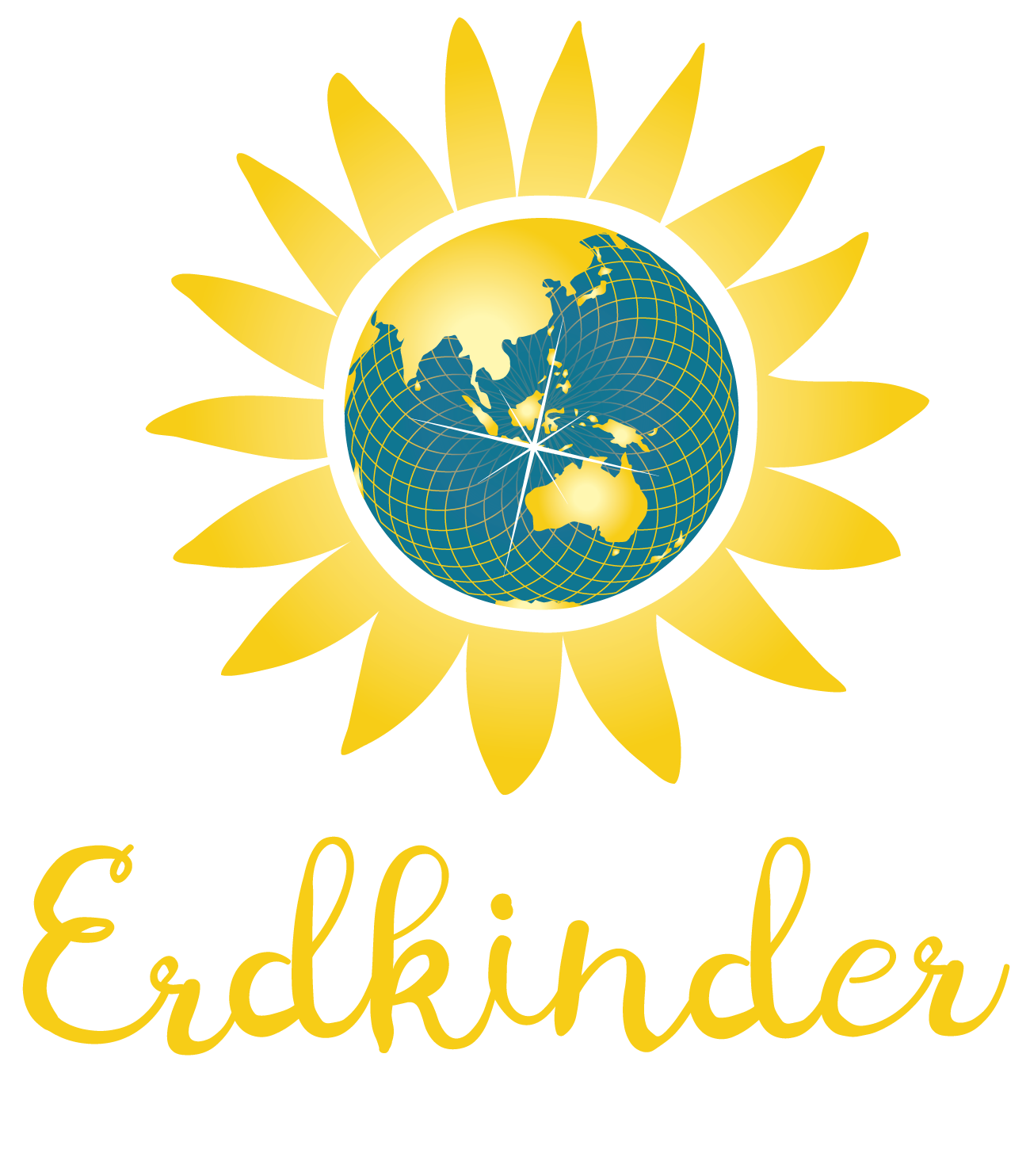

Dr. Maria Montessori introduced many new terms and concepts to describe how children grow and learn. These terms are still widely in use today in the Montessori community. You may encounter these terms as you learn about the Montessori method of education.
From infancy until age six, children go through a period of intense mental growth. This is when a child develops language and discovers the world spontaneously. Children at this age are able to absorb information like a sponge from their surrounding environment naturally and without much effort.
Meaning children’s house in Italian, was the name of the first school Maria Montessori opened in 1907. This school was located in the low-income district in Rome where Maria was born, and her philosophy has spread globally since its establishment. Children’s House – In many Montessori schools, this is the name of the classroom for children ages 2.5 (or 3) to 6 years; other schools call the classroom for this age group Casa, preschool, primary, or early childhood.
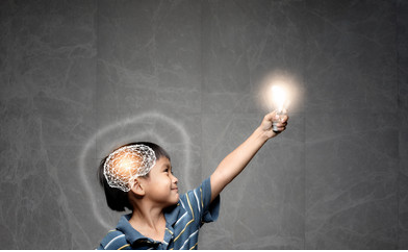
We apply the concrete to abstract philosophy to many of our lessons. This means that we build a foundation for your child’s understanding by starting with concrete concepts and then progressing to more abstract ideas. For example, in our math curriculum, students learn the decimal system through tactile work with Golden Beads grouped into units, 10s, 100s, and 1,000s.
The Montessori method helps children receive immediate feedback as they work. This approach, which helps children understand their successes and mistakes without adult assistance, builds their self-confidence and motivation.
Refining large- and fine-motor movements is one of the accomplishments of early childhood development, as the child learns to complete tasks independently. Our Montessori classroom offers opportunities for children to refine their movements and children are drawn to these activities, especially to those which require exactitude and precision, like holding a pencil.
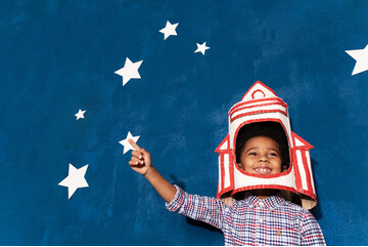
Maria Montessori urged us to give children a “Vision of the Universe” to help them discover how all of its parts are interconnected and interdependent, and to help them understand their place in society and the world. In Montessori schools, children in Elementary programs (between the ages of 6 – 12) learn about the creation of the universe through stories that integrate the studies of astronomy, chemistry, biology, geography, and history. These lessons help children become aware of their own roles and responsibilities as humans and as members of society, and help them explore their “cosmic task”—their unique, meaningful purpose in the world.
Didactic means intended to teach. We use didactic materials and a wide variety of learning tools to help children grasp various ideas and concepts.
In German, erdkinder translates to child of the Earth. – This term describes a Montessori learning environment for adolescents ages 12 – 15/18 that connects them with nature and engages them in purposeful, hands-on work in which they contribute to the community. Erdkinder programs are often referred to as “farm schools.”
This idea gives children the freedom to explore various ideas and activities in the classroom, but holds them accountable for taking care of their environment and being courteous to their peers.
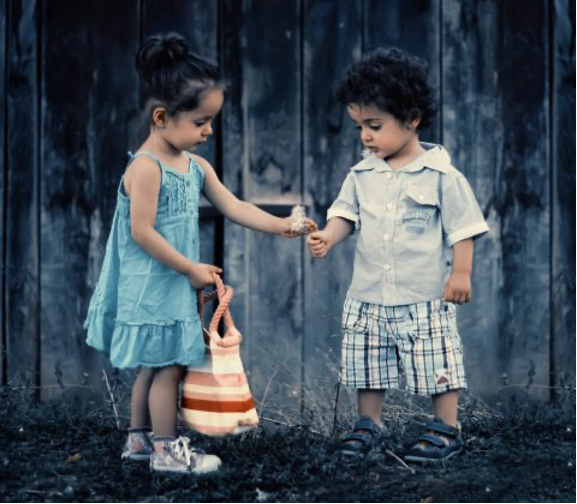
Living Montessori does not only teach children to read and write; our curricula are built to help children be kind, responsible, and caring citizens. Children will learn social skills and manners, including saying please and thank you, learning how to be polite, and more.
Age groupings are based on the Planes of Development as identified by Dr. Maria Montessori. Multi-age groupings enable younger children to learn from older children and experience new challenges through observation; older children reinforce their learning by teaching concepts they have already mastered, develop leadership skills, and serve as role models. Because each child’s work is individual, children progress at their own pace; there is cooperation rather than competition between the ages. This arrangement mirrors the real world, in which individuals work and socialize with people of all ages and dispositions.
Children from birth – age 3 may be grouped in varying multi-age configurations, and are commonly grouped from birth to 15/18 months (or when mobile) and 15/18 months to age 3.
Children from 2.5/3 – 6 years of age are grouped together in an Early Childhood classroom. 6 – 12 year olds share the Elementary (grades 1 – 6).
At the Adolescent/Secondary level, groupings may be 2- or 3-years (12-15; 15-18 years)
A natural developmental process exhibited by a love of work or activity, concentration, self-discipline, and joy in accomplishment. Dr. Montessori observed that children in Montessori programs exhibit normalization through repeated periods of uninterrupted work during which time they work freely and at their own pace on their own chosen activities. A normalized child is a happy, well-adjusted child who exhibits positive social skills in the Montessori classroom.
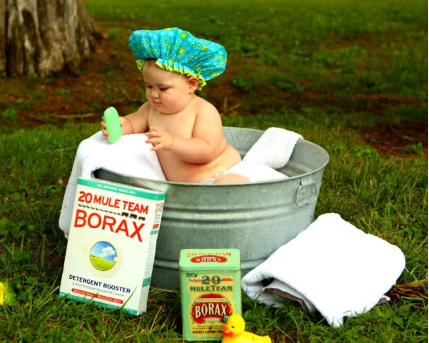
These refer to the four periods of growth people go through as they age. Each stage of development builds upon the last. These four periods include:
Practical life activities teach children how to take care of their home, classroom, and immediate surroundings. This involves learning about hygiene, exploring empathy, and working independently to navigate real-life situations.
We use sensorial exercises to develop and hone the five senses. Children explore the world by seeing, smelling, touching, hearing, and tasting, and build foundations for concrete learning.
Montessori teachers take a simple to complex approach when presenting students with information. They start with an idea at its most simplistic level and build upon it once children understand the basics.
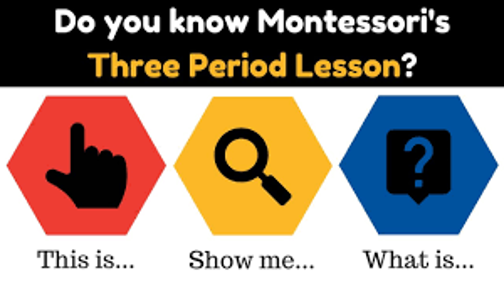
Our lessons are often shaped into three periods to best enable your children to learn. These three periods include:
First, teachers explain what something is and what it is called. For example, the teacher will tell the students, This is a square.
During this period, teachers ask children to share what they just learned. For example, students will have several shaped blocks in front of them and teachers will ask them which block is the square.
Recall is the final stage. Teachers ask students to recall what they learned from memory. We believe this method helps students fully understand and develop mastery of concepts in class.
Maria Montessori defined work as purposeful activity. Children explore work through purposeful activity of their own choice in order to learn and grow.
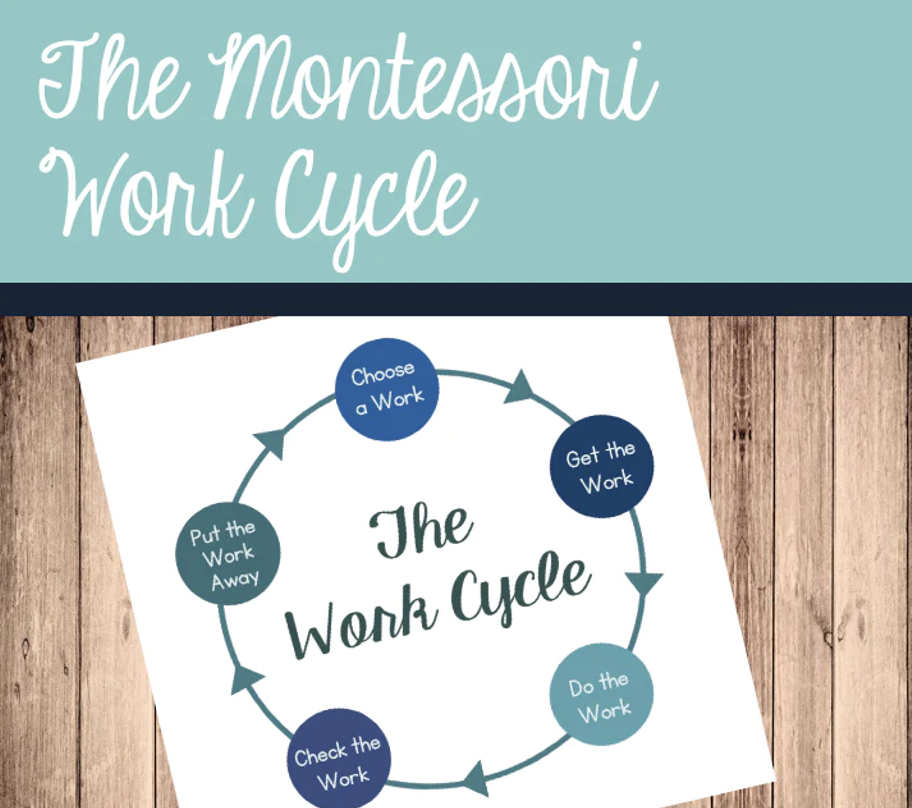
Within the prepared environment of the Montessori classroom, children are taught to complete a work cycle which includes 1) choosing an activity; 2) completing the activity to completion (perhaps repeating the full sequence of the activity multiple times), cleaning up and returning the materials to the proper place; and 3) experiencing a sense of satisfaction to have fully completed the task.
Subak Kana, Banjar Panglan, Pejeng, Kec. Tampaksiring, Kabupaten Gianyar, Bali 80552, Indonesien
Tel.: +6282147823913

+62 821 4782 3913
Subak Kana, Banjar Panglan, Pejeng
Kec. Tampaksiring, Kabupaten Gianyar
Bali 80552
Indonesien